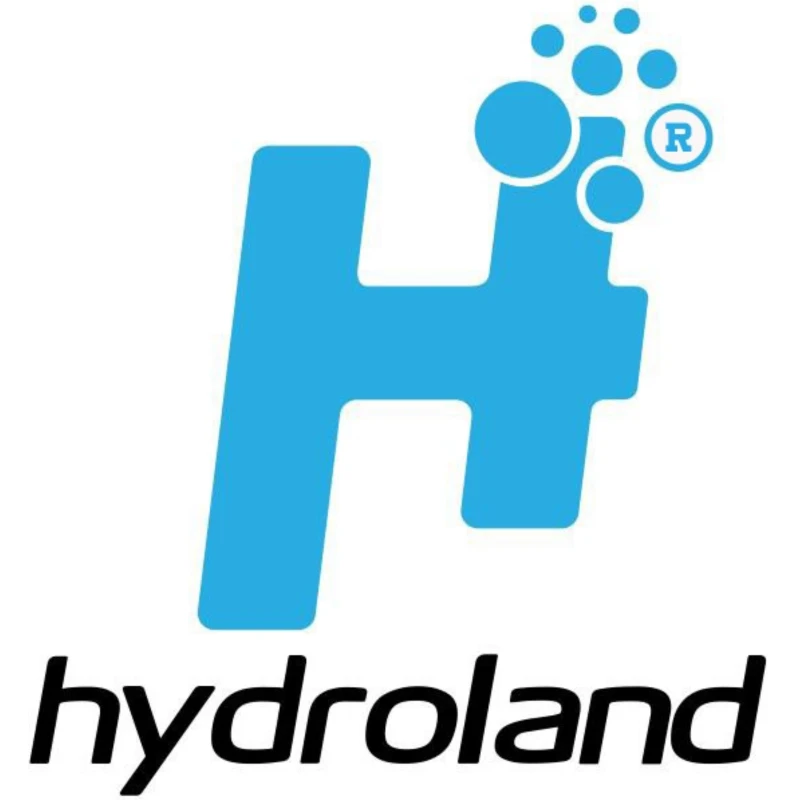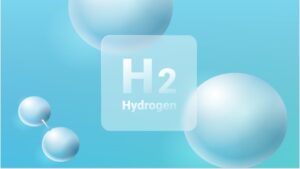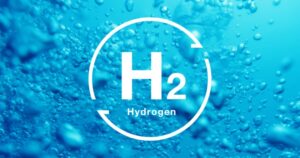Hydrogen gas is absorbed from the skin into the body during hydrogen bathing
Revealed by the hydrogen bathing system developed by the School of Veterinary Medicine, Kitasato University,
It has been found that the hydrogen bathing system not only allows absorption from the surface of the body but also provides benefits from inhalation. Given the previous understanding of the effects of hydrogen on health and disease, there are prospects for its use in underwater treadmill systems for walking training by dissolving hydrogen in warm water. The application extends not only to human health training but also to companion animals such as dogs with various inflammatory reactions due to illness and racehorses undergoing intense training.
In April 2022, the School of Veterinary Medicine at Kitasato University (Towada City, Aomori Prefecture) established the “Miniature Pig Research Promotion Endowed Course (Sponsored by SeptSapie Co., Ltd.),” the first veterinary medicine department in Japan, and has been conducting translational research on human and veterinary clinical health and disease using experimental miniature pigs.
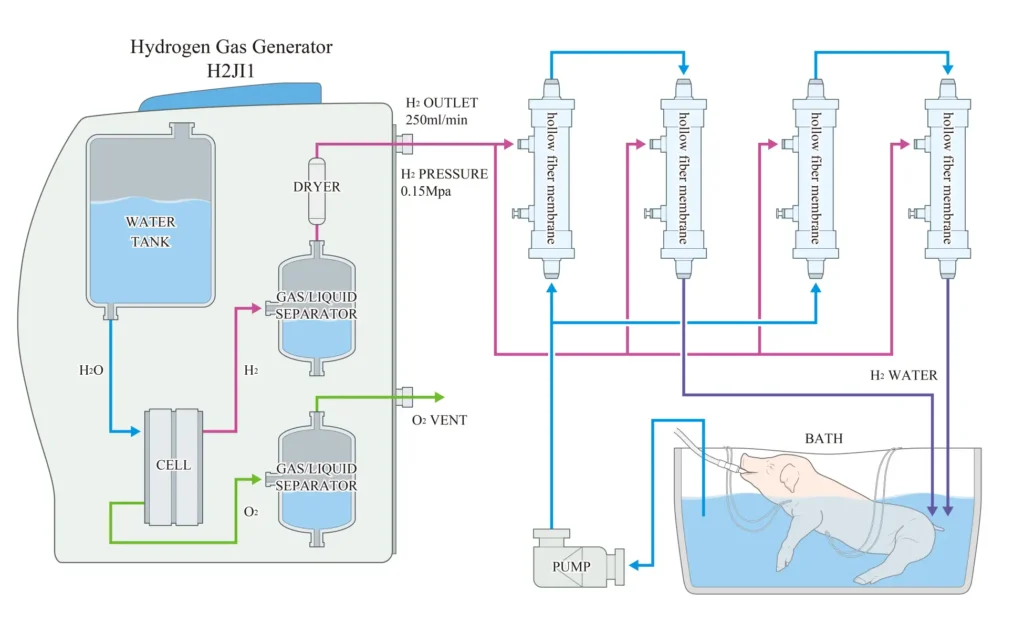
Recently, hydrogen bathing has become popular in the field of healthcare, but effective dissolved amounts of hydrogen, as well as methods of dissolution, have not been scientifically proven. Earlier, Professor Kobayashi and colleagues from this research group demonstrated that the skin characteristics of hairless miniature pigs are extremely similar to those of humans, making them suitable for transdermal absorption testing of drugs. In this current study, they conducted the following experiments in collaboration with Doctor’s Mann as part of joint industry-academia research at the Miniature Pig Research Promotion Endowed Course:
Using the hydrogen bathing system developed by Doctor’s Mann, which efficiently dissolves hydrogen gas into warm water, hairless miniature pigs were bathed in this system while under inhalation anesthesia to prevent absorption of vaporized hydrogen from the lungs. Blood was sampled periodically through a catheter previously inserted to the posterior vena cava, and as a result, an increase in hydrogen gas concentration was confirmed in the posterior vena cava after bathing.
Consequently, it was demonstrated that hydrogen dissolved in warm water permeates through the skin during bathing, supplying not only the surface of the body but also the central parts of the body through the bloodstream. As humans would utilize this hydrogen bathing system, it is considered an effective system for both absorption from the skin surface and inhalation of vaporized hydrogen from the lungs, given that both pathways are expected. There are also prospects for its use in underwater treadmill systems for companion animals with illnesses and racehorses undergoing intense training.
This research was published online on June 30, 2023, in the scientific journal “Archives of Medical Sciences. Civilization Diseases.”
[Background and Summary of Research]
In recent years, the therapeutic effects of hydrogen on lifestyle diseases such as circulatory disorders, emergency medicine, brain damage, and ischemia-reperfusion injury associated with organ transplantation have been attracting attention. Numerous reports have been made on pathophysiological changes and improvements through hydrogen gas inhalation therapy, oral administration, and tissue perfusion (Iwai et al., Front Immunol. 2020, Kobayashi et al., PLoS One. 2019, Sano et al., J Clin Med Res. 2020, Sugai and Hakamata et al. Sci Rep. 2020). As for the routes of hydrogen intake, methods include inhaling hydrogen gas and absorbing hydrogen through the intestines by dissolving it in liquid or using hydrogen-generating tablets. It has been believed that hydrogen gas, being an ultra-low molecular weight molecule, is absorbed into the body through diffusion from the skin, even from the skin of animals.
At the molecular level, hydrogen has the important characteristic of diffusibility and, being the smallest non-polar molecule, can diffuse rapidly. While the action of most drugs is limited to the range reached by blood flow, hydrogen is believed to diffuse rapidly into areas without blood flow. We have demonstrated, using rats, that hydrogen gas ingested into the body through inhalation acts as a reducing agent in various organs, showing a reduction in oxidative stress, anti-inflammatory, and anti-apoptotic effects (Shirakawa et al., JACC Basic Transl Sci. 2022). However, despite extensive biological research on hydrogen, there have been few pharmacokinetic studies of hydrogen using animals for extrapolation to humans. We have conducted studies by administering high concentrations of hydrogen gas to miniature pigs and have demonstrated that hydrogen can be supplied to the whole body, including arterial blood (Sano et al., PLoS One. 2020). However, when we administered hydrogen gas to the intestines of miniature pigs, although hydrogen concentration increased in portal vein blood, it did not increase in arterial blood (carotid artery) (Katsumata et al., Heliyon. 2021), suggesting differences in absorbability depending on the route of administration.
On the other hand, human skin related to percutaneous absorption has many anatomical features specific to human skin, such as surface marking, the relationship between the epidermis and dermis, fine blood vessel structures in the dermis, and biochemical and immunological characteristics. Therefore, to extrapolate the mechanism of percutaneous absorption in humans, it is necessary to experiment with human skin in vitro, but there have been ethical constraints on verifying the dynamics in the blood. Therefore, although mice, rats, guinea pigs, rabbits, dogs, and non-human primates have been used as alternatives, even the skin of these animals, including hairless species, is known to differ from human skin. Even in a great ape model, only the skin of the palms and soles of the feet is reported to be similar to human skin.
Earlier, the authors demonstrated that the skin characteristics of hairless miniature pigs are extremely similar to those of humans, making them suitable for transdermal absorption testing of drugs. Hairless miniature pigs have very little hair or sparse hair, and their skin color is light. They have similar tissue structure and properties, especially protein composition, to human skin and have been widely used in skin tests. Therefore, hairless miniature pigs were considered to be the best experimental animals as an alternative to human skin for experiments on hydrogen absorption from the skin that cannot be studied in humans.
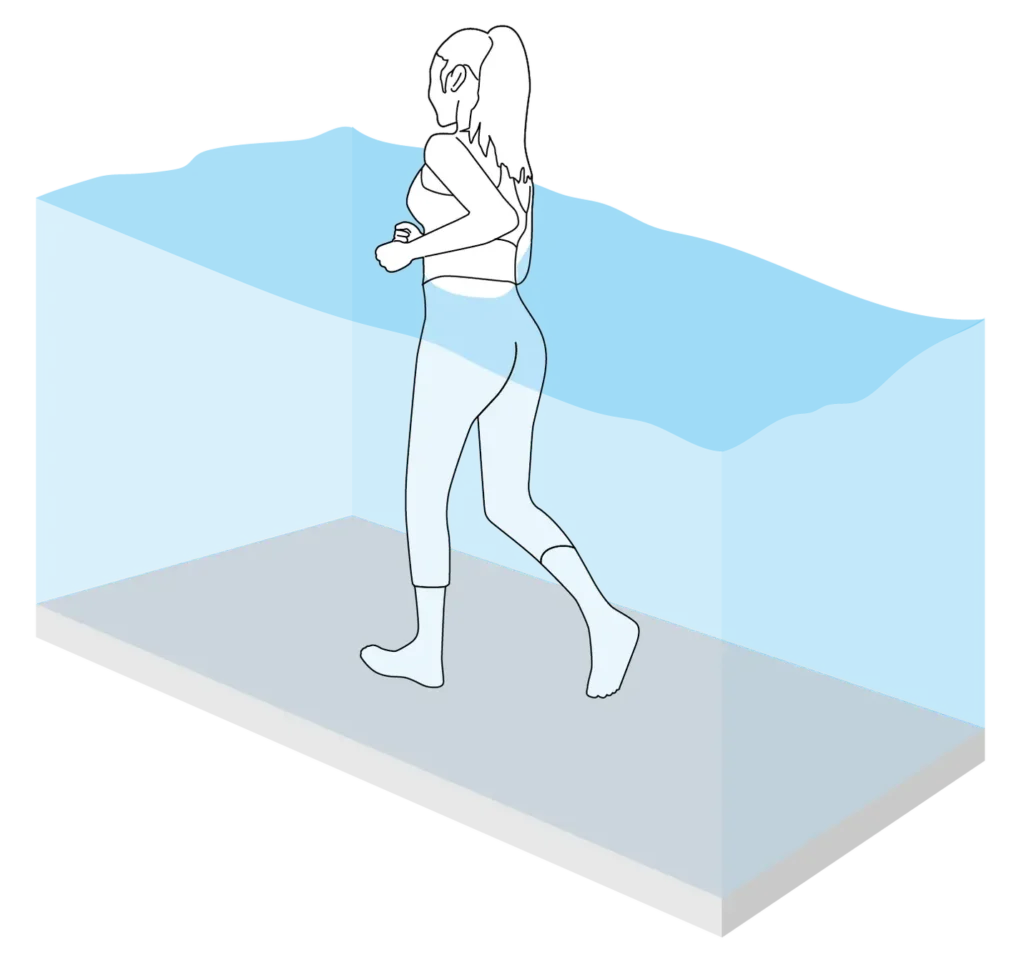
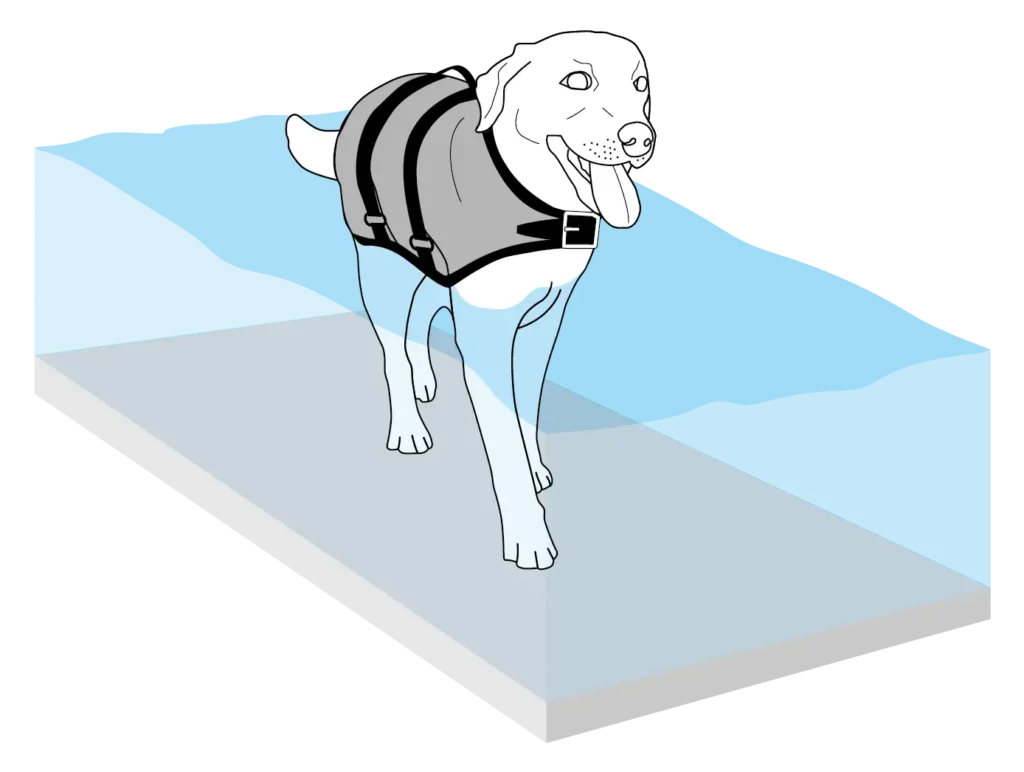
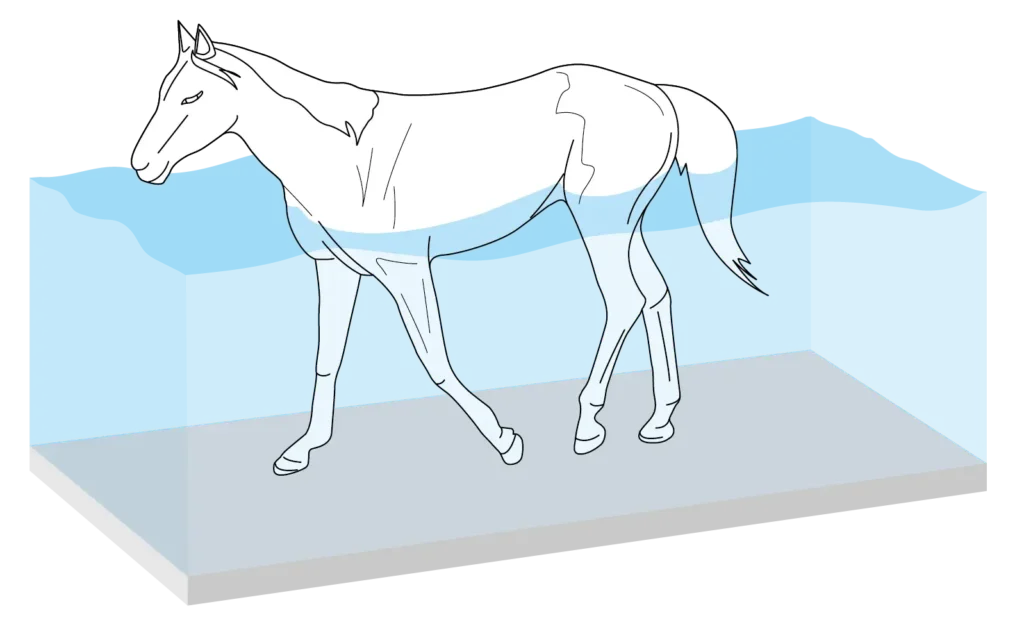
This study established a system for periodically sampling blood from hairless miniature pigs and developed a hydrogen bathing system that can dissolve hydrogen at high concentrations into warm water. Thus, hairless miniature pigs were bathed in this system, and the dynamics of hydrogen in the body were analyzed. As a result, an increase in hydrogen gas concentration was confirmed in the bloodstream when hairless miniature pigs were bathed in hydrogen-dissolved water using the hydrogen bathing system, suggesting the possibility of hydrogen permeating through the capillaries on the surface of the body. Additionally, it was considered possible to supply hydrogen not only to the surface of the body but also to tissues near the surface.
Source: PRTIMES
